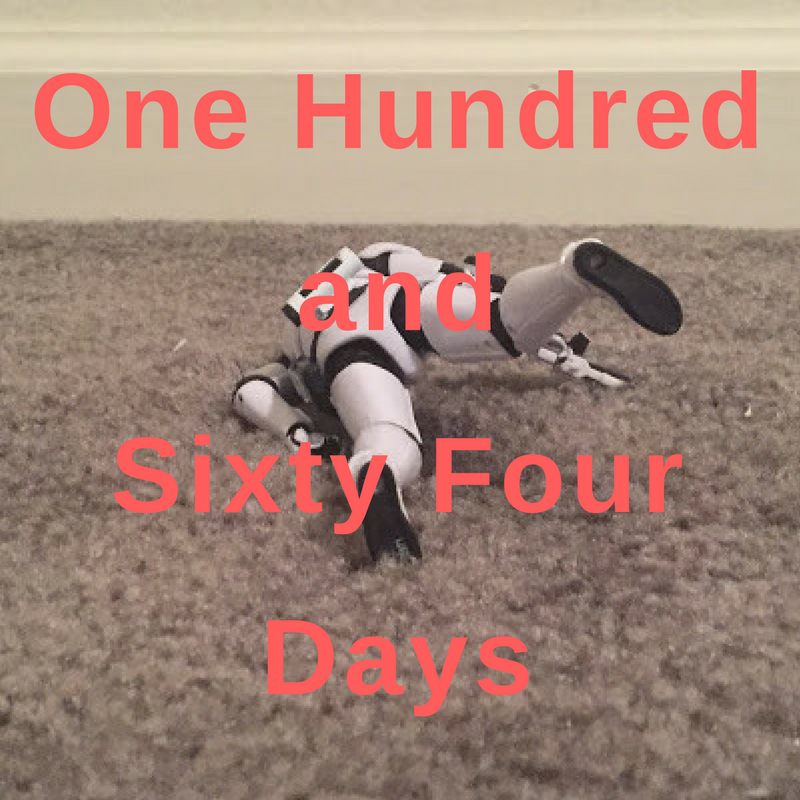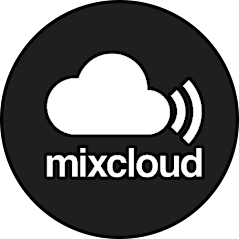He ended up really, really, really sad.

Lincoln
Within the first few seconds of the first song ("Ana Ng") the listener is aware that something is
different. Everything that had been present on
They Might Be Giants can still be accounted for, but perhaps it would be better to say that everything which was present had been amplified and strengthened. Whereas their first album had been occasionally sparse, intentionally discordant in places, and doggedly lo-fi, everything on
Lincoln was arranged with absolute precision. The jagged guitar riff and stomping kick drum that open the album are perfectly compressed for maximum impact: the song hits like a hammer and never lets up for the space of three-and-a-half minutes. To say that "Ana Ng" is one of the duo's best songs is something of an understatement: the development and maturation of their songwriting and recording skills in the two years between their debut and their sophomore album - even 23 years later - is simply astounding.
They had a lot to prove with this record. They were a novelty act who had probably already outlived the most generous career expectations: a song on MTV and heavy rotation on college radio, all riding atop an album of strange synthesizer noises and a few classically formalist pop songs. They obviously had an idea of what kind of sound they wanted to produce but their first album was too scattered to fully realize this ambition.
Lincoln was a bolt from the clear blue sky, a mature and disciplined statement dedicated to (seemingly) immature thoughts and random ideas. In the space between their first and second albums, They Might Be Giants discovered
focus, and this was the key: you can get away with doing anything you so desire as long as you have the chops and the discipline.
Lincoln is a forty-minute long laser beam, 18 songs in 40 minutes, a murderers' row of one catchy, complex, and deceptively melancholy ditty after another, marching in perfect military time. They Might Be Giants were essentially a hardcore group with a drum machine, and song-for-song I'd put
Lincoln toe-to-toe with
Double Nickles on the Dime any day of the week.
The problem with
Lincoln is that all the copious skill on display only made it that much easier to underplay and undersell the actual content of the songs themselves. Because, yeah, the album is partially defined by a handful of purely silly nonsense songs, tracks like "Cowtown" and "Pencil Rain" that resist all but the most annoyingly abstruse allegorical reading. They're goofy songs built around tongue-twisters. If anyone wanted an example of They Might Be Giants as a joke band, a gimmick band of no real consequence who produce stupid ditties for the clever kids in the back of math class, well, those are the tracks to which one would go first.
But if there's one thing about which I am convinced after having lived with this album as a fixture of my life for over twenty years, it's that there's something real and haunting behind the glib facade. If you listen to the album without really
listening to the album you might hear a procession of clever tunes built around puns and wry humor. You might think that some of the jokes are corny and some of the jokes are witty, and you might think that some of the attempts at pathos feel strangely hollow. But it would be a terrible mistake to hear the album as anything other than a holistic unit. It hangs together remarkably well
as a unit because on
Lincoln the Johns mastered the trick that would essentially make their careers: making deceptively
happy songs that were, in fact and on closer examination, remarkably
sad.
Listen to the album the first time and you might hear a remarkable assortment of tongue-in-cheek ditties, some great sarcastic pastiches and high-energy larks. Listen again in a different frame of mind and the whole thing takes on a decidedly darker pallor that becomes altogether harder to shake. You could dismiss one sad song, you could dismiss two sad songs, but a whole album comprised of (with only a few exceptions) unremittingly depressing, anxious, heartbroken, jaded, exhausted, and downright
bleak songs? That's something that not everyone seems to get. There's real panic behind the mania.
Take a look for yourself:
Everything sticks until it goes away /
And the truth is, we don't know anything.
Somebody's reading your mind /
Damned if you know who it is /
they're digging through all of your files /
Stealing back your best ideas.
Should you worry when the skullhead is in front of you /
Or is it worse because it's always waiting where your eyes don't go?
A woman's voice on the radio can convince you you're in love /
A woman's voice on the telephone can convince you you're alone.
I know you deceived me, couldn't sleep last night /
Now my tear stains on the wall reflect an ugly sight.
I'm going to die if you touch me one more time /
Well I guess that I'm going to die no matter what.
It must be raining because a man ain't supposed to cry /
But I look up and I don't see a cloud.
Don't call me at work again no no the boss still hates me /
I'm just tired and I don't love you anymore.
What's the sense in ever thinking about the tomb /
When you're much too busy returning to the womb?
I love the world and if I have to sue for custody /
I will sue for custody.
If it wasn't for disappointment /
I wouldn't have any appointments.
Now you're the only one here who can tell me if it's true /
That you love me and I love me.
The reason
Lincoln is their masterpiece, why this is the one They Might Be Giants album more than any other that exemplifies why they are such great and gifted songwriters, is that this is the album on which the line between energy and anxiety was most neatly effaced. They're not singing jerky, fast jingles because they're having a great time: no, they're actually quite miserable, desperately unhappy, and it's only by going
so fast that they lose their breath that they can actually begin to express the deep discontent lying underneath the happy exterior.
The last third of the album (from the final breather of "You'll Miss Me") is one long sled ride down the hill from paranoia through despair right on to delusion. The album's climactic track, "Kiss Me, Son of God," is perhaps the single most demented kiss-off ever written by someone who wasn't actually in a padded room. It's They Might Be Giants's version of slamming the mic on the ground and walking offstage after delivering a ferocious "fuck you" to everyone who ever kicked their shins in gym class. The only ways you could possibly follow-up the end of
Lincoln would be to hang yourself from the rafters or sign a major-label deal. You know the score, but anyone coming to
Lincoln fresh might legitimately worry for the mental health of the men who wrote it.
Some "scamp" took down the album version, so here's an OK live version.
All of which might well be summed up as supremely conceited and self-satisfied . . . and you'd be 100% correct in doing so. That's the point: one of the reasons - perhaps the main reason - why They Might Be Giants took off the way they did was that the spoke to the dramatic self-absorption and feigned martyrdom of the American teenage nerd in a way that no other musical group or cultural phenomenon had ever quite done before. This is something that no one under a certain age - say, 25 at the youngest - can really understand without having to be told: until very recently, nerd media was mass media, and it only stuck with nerds because they were too stupid to realize that sci-fi TV shows and fantasy books were not things that grown men (and women, but let's be frank, the Android's Dungeon was a boys club for decades) should care about. It was all well and good for normal people to love
Star Wars, but to keep caring about it long after you left the theater - and to obsess about it long past grade school - that took a special kind of willful suspension of disbelief in the way life was "supposed" to be lived. And the people who went to sci-fi conventions and traded VHS tapes of dubbed anime and played AD&D and listened to
Tarkus long after anyone else cared about ELP - they did so because they needed something else to fill the void in their lives, because all the things that "normal" people were supposed to care about in the industrialized west just weren't cutting it.
Is the image of the self-hating nerd a cliche? Is there any truth to the stereotype of the basement-dwelling troll with Cheeto-stained fingers and a soiled "I GROK SPOCK" T-shirt, awkwardly fumbling through gym class and desperately ashamed of the fact that he can't really complete any aspects of the President's Physical Fitness Test to satisfaction? Perhaps
in its most extreme forms this is an exaggeration, but there's no doubt whatsoever that until very recently - as in, within the last decade and change - nerds were decidedly
off the mainstream. And they - hell, who am I kidding?
we - were self-righteous about the fact that we had been excluded from the mainstream. Even if the only people who had excluded us were us. We had our reasons, or at least we believed that we did.
And this is what They Might Be Giants got. Being young and brilliant also sometimes means being a self-absorbed asshole. Sometimes, being stuck on a loop in your own head can be a fate worse than death. When I was younger I thought that the best track on
Lincoln was "They'll Need A Crane," and while I still think that's a fantastic song, as I get older I see that the album's real masterstroke is "Snowball in Hell." It's a great song about growing up and being desperately unhappy with your life, a sentiment that can best be summed up in the phrase "money's all broke, and food's going hungry." It's a song about unhappy adulthood that somehow sounds wistful without seeming maudlin, and defiantly chipper despite increasingly dire circumstances. It's a better song than it has any right to be, considering just how unlikely They Might Be Giants ever were.
Anyone who cared to pay attention past the goofs and the weirdness was rewarded with a shimmering gem of a pop song: but in order to pay attention you had to have the patience, and in order to have the patience you had to care. Being able to care about something as nerdy and unimportant as a weird indie rock album was definitely a sign of deep commitment, and once They Might Be Giants found a way to broadcast directly to those fans with a heavy investment in being deeply committed . . . well, the rest was history.





(out of five)




